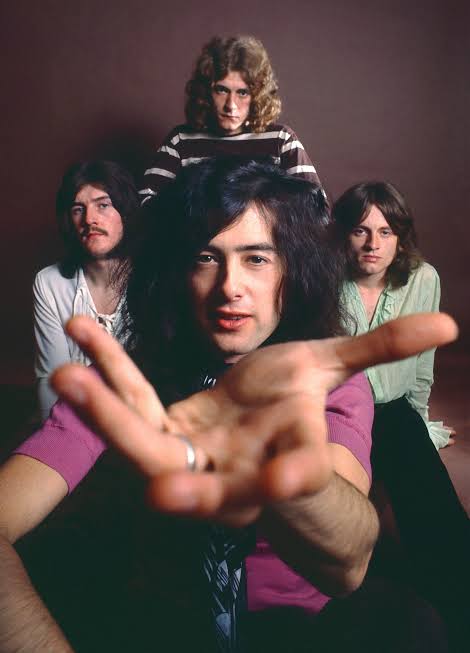
From day one, Led Zeppelin was always the brainchild of Jimmy Page. Sure, the band could have been a democracy when it wanted to, but there was nothing on any of their records that didn’t get Page’s approval or had his signature touch for production behind the scenes.
Although most of the members were free to do whatever they wanted in between the studio and the road, Page always had a limited time to take breaks before the next album whirlwind started back up again.
Because if Page had his way, Zeppelin would probably still be going to this day, pumping out whatever riffs were floating around in his head. The entire group had the makings of a superband, and when John Bonham passed away after In Through the Out Door, it would have been foolish to think that any kind of drummer had the technical chops to replace him on the drum stool.
But, really, the end of Zeppelin finally allowed Page to work with people he never got the chance to in the early days. He had always been a fan of Paul Rodgers when putting together the Swan Song label and signing Bad Company, but after needing a musical incubation chamber after Zeppelin, The Firm was the best way he could have moved on from his old band and still bust out the violin bow on his guitar when he wanted to.
Looking back on his main outfit, though, Page wanted to keep himself laser-focused on getting the guitars to sound as roaring as possible and make sure every aspect of the mix was perfect. And while there would be the occasional guest vocal from someone like Sandy Denny, Roy Harper was among the only people in the greater rock sphere that Page could set aside time for.
He already gave the vocalist his spotlight at the tail end of Led Zeppelin III, but he had a certain camaraderie with Harper that went far beyond a fly-by-night friend. So when Harper asked Page to throw in some guitar licks on his album Stormcock, Page broke his one rule and stepped out of the studio for a bit to have a break from his usual wheelhouse.
According to the guitarist, this was the only instance where he would have set aside time for someone other than Zeppelin, saying, “The only deviation from that was my playing with Roy Harper on Stormcock. He and I were playing the two acoustics, and that was really cool.
I really admired Roy’s work and still do. I saw him the last time he played at the Palladium in London and it was absolutely extraordinary. It was spine-chilling – the stuff he was coming up with, the new material he’d written. But that was the only area really where I stepped out of Led Zeppelin, because if I wasn’t on the road I was writing for the next album.”
But given the circumstances, Page did end up giving the world a look at another version of his sound that he kept under wraps. Many of Zeppelin’s acoustic performances were few and far between by the time they started working on Physical Graffiti, so hearing him make an unintended sequel to the material on Led Zeppelin III felt like seeing a vision of what Zeppelin would have been like as a more folksy affair.
Then again, many fans shouldn’t have become used to Page taking a break all that often. He had plenty of ideas in the tank to carry Zeppelin on for multiple decades if he could, but sometimes it’s better to contribute to a few songs to break up the monotony of being in the studio too long.
Be the first to comment